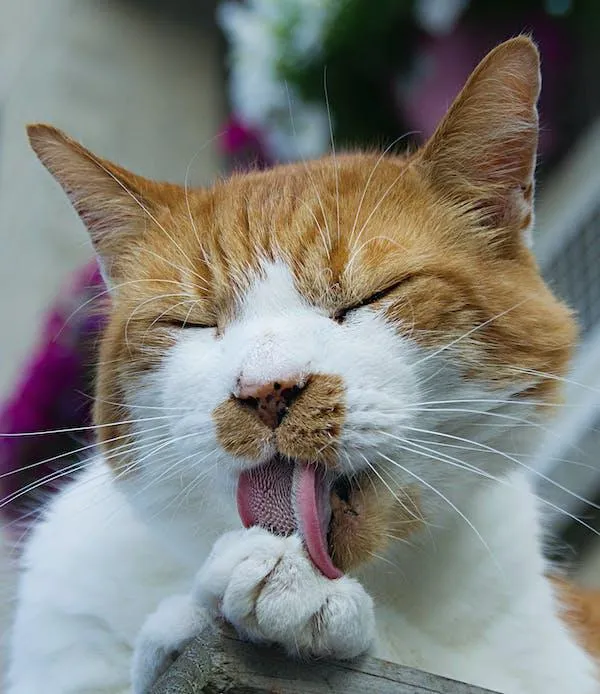

Grooming
Cat grooming is an essential aspect of feline care and well-being.
It involves maintaining a cat's fur and overall hygiene.
Grooming is important to cats for several reasons, and as a cat owner, you can play a significant role in helping your cat with this aspect of their care.
Fur Health: Grooming helps keep a cat's coat clean, which is vital for their overall health. Cats are meticulous self-groomers, but they may need assistance, especially long-haired breeds, senior cats, or those with mobility issues. Regular grooming prevents matting and reduces the risk of skin conditions and parasitic infestations.
Bonding: Grooming is a bonding experience between cats, each other and their owners. When you groom your cat, it reinforces your relationship and builds trust. Cats often purr and relax during grooming sessions, associating them with comfort and security.
Temperature Regulation: Cats also groom to control their body temperature. The act of grooming can stimulate circulation and cooling, which is crucial in hot weather.
Stress Reduction: Grooming also acts as a stress-relief mechanism for cats. When they are anxious or upset, they may groom more frequently. In such cases, a gentle grooming session can help calm them down.
Here are some tips on how you can help with your cat's grooming:
Regular Brushing: Brushing your cat's fur is essential to remove loose hair, prevent matting, and distribute natural oils that keep their coat healthy. The frequency of brushing depends on your cat's breed and coat length, but generally, a few times a week is a good practice.
Bathing: Cats are generally good at self-cleaning, but sometimes they may need a bath, especially if they get into something dirty or develop a skin condition. Use a cat-specific shampoo and make sure to rinse thoroughly. Certain breeds eg. Sphynx also NEED regular bathing as they have no fur.
Fur helps separate oils and sweat from the skin of animals. Because of their lack of fur, sphynx cats have incredibly oily and sweaty skin, so a weekly bath is good practice.
Nail Trimming: Regular nail trimming is crucial to prevent overgrown nails, which can be uncomfortable for your cat and damage furniture. Use a cat nail clipper and be cautious not to cut too close to the quick. If you don't feel confident in doing it yourself, then get them regularly trimmed at your veterinarian.
Ear Cleaning: Inspect your cat's ears regularly for dirt, wax, or signs of infection. If necessary, clean the ears with a soft, damp cloth or a veterinarian-recommended ear cleaner. Cats ears should be clean of any debris.
Dental Care: Dental health is vital for cats. Brush their teeth with a cat-specific toothbrush and toothpaste if they will allow you to, or provide dental treats and toys to promote oral hygiene.
Professional Groomer: If your cat has a particularly challenging coat or grooming needs, consider taking them regularly to a professional groomer who is experienced in working with cats.
Monitor for Skin Issues: Keep an eye on your cat's skin for any signs of irritation, redness, or lumps. If you notice any abnormalities, consult your veterinarian.
Cat grooming is essential for maintaining your feline companion's health, comfort, and well-being. Regular grooming sessions can also strengthen your bond with your cat and provide them with a sense of security and relaxation. Always be gentle and patient when grooming your cat, and if you have any concerns or difficulties, don't hesitate to seek advice from a veterinarian or professional groomer.